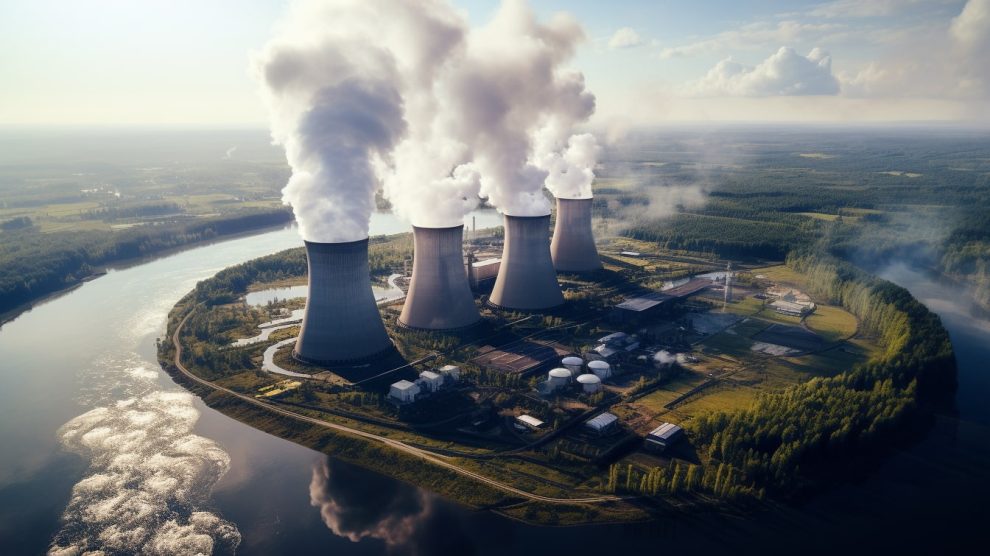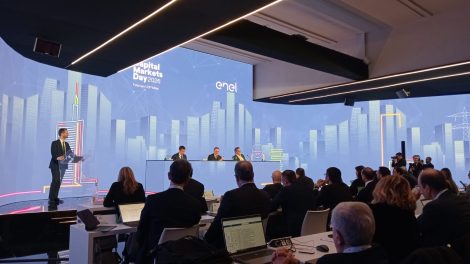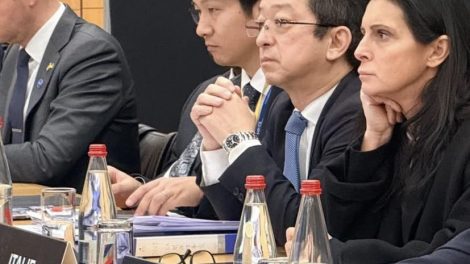The Italian government is wholeheartedly in favour of nuclear power. That’s the inescapable takeaway from a conference (“Nucleare: si può fare,” organised by Intelligence Week) in which three leading members of the executive took part. Representing all three major partners in the governing coalition, they displayed unity in their support for a gradual return to nuclear power generation.
- These were Matteo Salvini (Deputy Prime Minister and Minister of Infrastructure and Transport), Gilberto Pichetto Fratin (Minister of the Environment and Energy Security) and Adolfo Urso (Minister of Enterprise and Made in Italy).
- All spoke of a whole-of-government approach to a nuclear strategy, which is currently being drafted by the brand new National Platform for Sustainable Nuclear – kickstarted by Minister Pichetto in late September and overseen by his ministry.
It’s a strategic choice – especially now. The ministers emphasised the need for energy autonomy and diversification against the backdrop of the Hamas-Israel conflict, which has already compounded the long-running energy crisis by impacting oil and gas prices. “We need to reduce dependence on coal, gas and oil and achieve Europe’s energy independence. Nuclear power can make a significant contribution. This government is more aware than others of our and Europe’s needs, and it can do nuclear power because this strategy is shared by all its components and its majority,” explained Minister Urso.
- “The images from Israel are barbarically topical and require us to reflect [on energy issues] without ideology,” commented Minister Salvini, while Minister Pichetto stressed that Rome maintains “a very strong relationship with current supplier countries” – such as Algeria, Libya, and Azerbaijan.
Please, in my back yard. The deputy PM made headlines by declaring that he would be happy to see a next-generation reactor in his native city, Milan – quite the statement in a country that struggles with the NIMBY (not in my back yard) syndrome and twice rejected atomic energy with two referendums, in 1987 (right after Chernobyl) and in 2011 (right after Fukushima). Still, Minister Salvini is calling for a new country-wide consultation on next-generation nuclear power.
- The context is that conditions are increasingly favourable: a majority of Italian citizens (54%) now favour nuclear power according to a recent SWG poll, and the young are especially keen (63%, compared to 47% of those over 55).
- “There was reluctance to talk about nuclear power, but the country has changed a lot,” commented Minister Pichetto with reference to the polling numbers and speaking of a “new and modern sensibility.”
- “A greater awareness of this issue has developed in Italy,” added Minister Urso, who believes the nuclear strategy can overcome electoral contingencies: “we can lay the groundwork in this legislature, and in the next one perhaps someone else will be able to inaugurate those plants.”
Dates and tech solutions. Asked about the referendums, Minister Pichetto replied that they referred to outdated power plants. “We are not talking about the third generation of nuclear power; we are talking about the fourth,” as well as novel reactors that “experts say will be feasible in the early 2030s”. Still, the principle of technological neutrality prevails: today is not about deciding what kind of reactor to deploy – but rather preparing the ground for doing so in the future, he said.
- This did not stop Minister Salvini from venturing a date: “If we start tomorrow, in 2024 […] it will take seven to eight years. Which means that the first switch can be turned on in 2032.”





